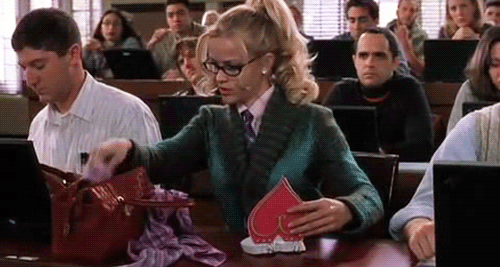Hi, I’m Kate. Ask an Author is an advice column for authors at all stages of writing, publishing, and hand-wringing. Have a question? Fill out this form and I’ll answer it in a future response! Looking to work one-on-one? Find me at Broad Editorial for additional support.
Recently, an editorial client asked if I had any tips or resources for how to work on a particular craft element in her novel. I was still thinking about the conversation after the fact, and it made me want to devote this week’s Substack to the question.
In this case, the focus was on character arc. But the details aren’t important—my answer would remain the same. There all sorts of craft books and blogs, and I can give recommendations or share popular titles, but my #1 tip for 95% of writing issues is this:
Read books within and outside of your genre to see how other authors have tackled the same problem(s) you’re facing.
Our stories are unique, but the underlying building blocks aren’t. We’re all trying to figure out character, conflict, tension, stakes, momentum, dialogue, chapter breaks, scene breaks, how to move through time, how to do a flashback, how to open a chapter, how to end a chapter, how to amplify a cliffhanger, how to layer more meaning, how to be funny, how to be suspenseful, how to write description, how to write action, how to convey setting, how to convey place, how to make a moment feel alive on the page. There’s no “rule” for how to do any of this—but the good news is that there are examples and instruction all around us. This is equally true for non-fiction as well.
Whatever it is that you’re struggling with, you can read with that lesson in mind. It can be a particular book, but it can also be (almost) any book. How does the author do what you, too, are trying to accomplish in your own work? (And if you think they don’t succeed at the task, why not?)
It can be great to read with a pen in hand, a highlighter, something for taking notes—whatever brings out the active reader in you, who’s also reading as an attentive writer. If you’re looking at how to give your character more of an arc, for example, you can mark the places in a scene that show internal vs. external conflict, lines that give insight into the character’s thoughts or feelings, and moments where we see that character start to evolve or change. If you’re struggling with how to convey information, try reading the openings of a few novels you’re already familiar with and note every piece of backstory and where and how it’s woven in—as well as what’s left out or saved for later. If you’re trying to make your dialogue sound more natural, pick a book with dialogue you admire and read the dialogue aloud. Record yourself. Play it back. How does it sound? What makes it “natural” to your ear? How is it different from the dialogue you’re writing? A published book is a completed tapestry. You as an author can pick apart each thread to see how it was stitched together in the first place.

This doesn’t mean you simply copy what another book does, or that you have to assume that because that other book got published, the author must be doing something “right.” There are, of course, different tastes and different projects. There’s the ineffable you-ness that you bring to everything you write. And knowing what you don’t want to write or how you don’t want to sound can be useful, too. Your studious method of reading is an information-gathering, fact-finding mission. You’re looking to see what other authors have done. The goal is to recognize and better understand the moves authors can make, so you have a broader range of available options at your fingertips and can pursue conscious and intentional choices in your own writing.
I often hear beginning writers say they’re afraid of reading too much, especially in their genre, because they don’t want to be “influenced.” I completely disagree. I want to be influenced. I want to get better! I want to be shaped by what I’m reading. We have the best teachers at our fingertips: other books. Early writing is perhaps more likely to soak up other voices, but there’s no other way to find your own voice and point of view except by writing more. To not read because you think your book will lose its uniqueness is to hamstring your writing before you’ve even let yourself get started.
There’s a chapter in Hanya Yanagihara’s A Little Life where a character goes for a walk around Manhattan, and in that walk he reflects on scenes from his childhood. I have a notebook in which I outlined the entire structure of this chapter to try to understand how the author did it: how did she take me on this walk and take me to so many moments in the character’s life and do so seamlessly, without it feeling like backstory that slowed the book down or led me astray? I’ve never written a similar scene, but I was so impressed with how it worked, I wanted to understand how she did it. I’ve made reverse outlines of entire books I admire (The Girls, History of Wolves, Transcendental Kingdom), going scene by scene to dig into what happens in the narrative and how the author does it. I’ve read mysteries and thrillers, especially, for plotting—how do they create tension even before a big event sets the story in motion? I’ve read romances to focus on character depth and emotion—how do they pack so much in?
It doesn’t mean I’m trying to copy those particular novels. But I want to learn from everything I’m reading, so that I can, slowly, step by step, word by word, strengthen my own writing over time. I read a book earlier this year with an ending I’m still thinking about—Our Wives Under the Sea—and in the back of my mind I’m still puzzling over the question how did she do that?? How did the author make me so invested? I recently fininished a different book that I thought let itself down in the ending, and while I won’t share the title, I’ve been mulling that over, too. What about it felt underwhelming to me? How can I make sure the ending to my own novel packs enough of a punch that readers don’t finish the book and wish it had done more? What makes an effective ending? What books do I think nail the ending, and what lessons can I take from them and apply to my own work?
Whatever you’re struggling with in your writing—whatever you’re working on and trying to get better at—what would happen if you put together a stack of books and read with that particular struggle/issue/accomplishment in mind?
I’ll be back with more reader questions, so keep them coming!
Good luck, and keep going!
Kate



